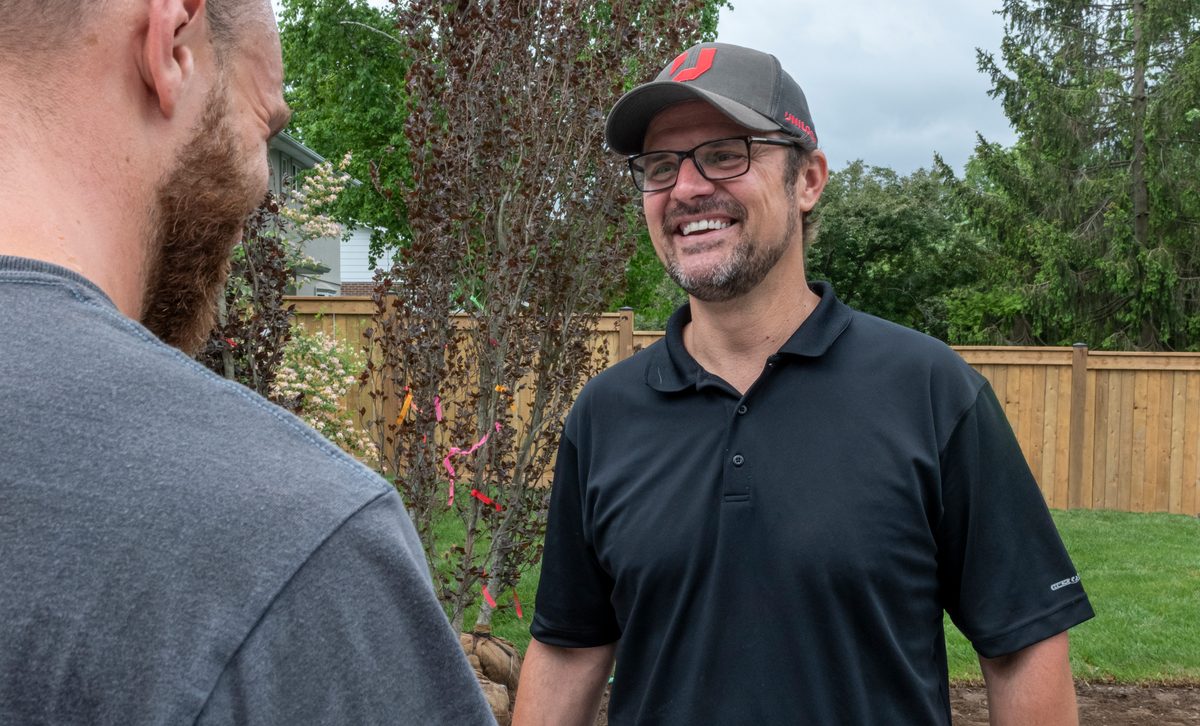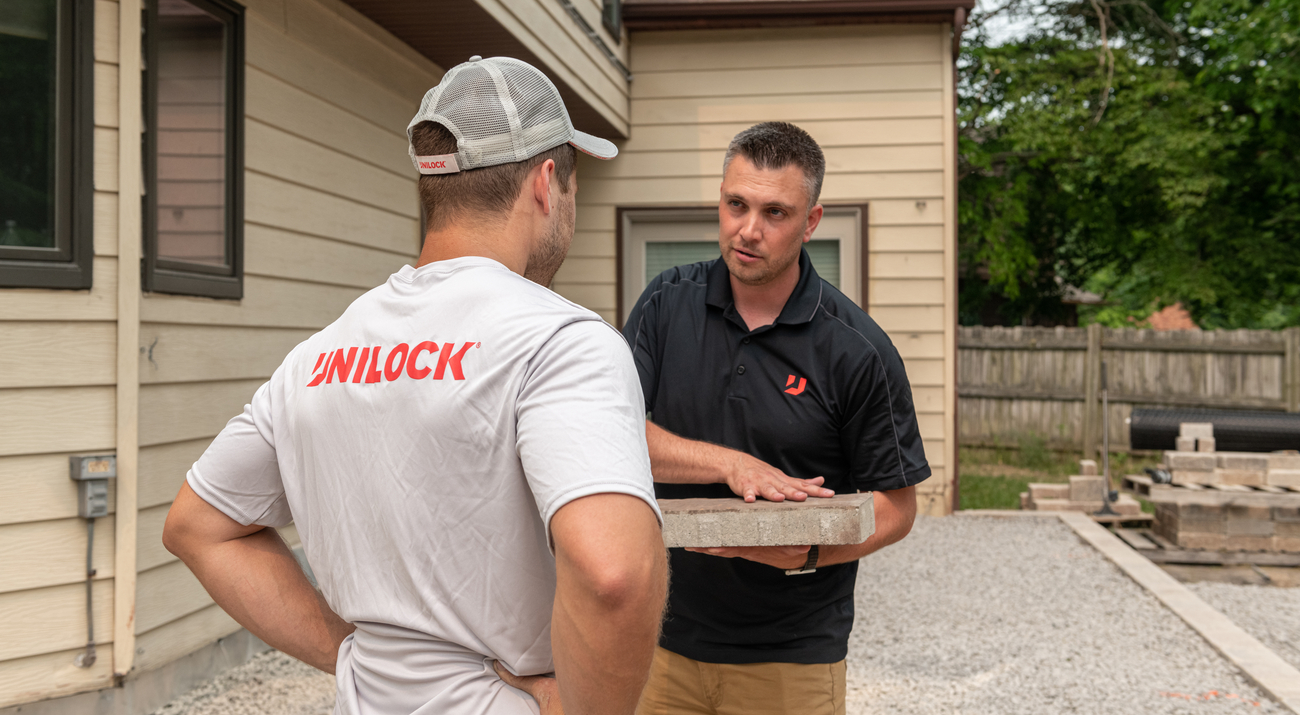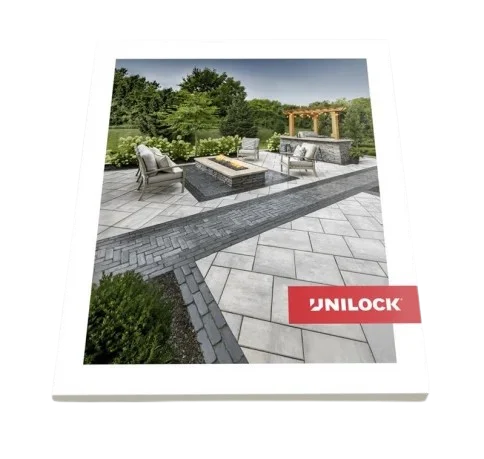How to Build a Sustainable Landscape Construction Business

The landscape industry is evolving, and with the rise of environmentally friendly product alternatives and holistic design approaches, we are seeing a trend toward sustainability in all projects including homeowner projects, which indicates a growing market for environmentally conscious alternatives.
In this article, we’ll explore the importance of adopting sustainable practices that benefit both the environment and your bottom line.
What is Sustainable Landscaping?
Sustainable landscaping refers to the efficient use of all materials and resources like permeable concrete pavers and native plants to support local wildlife, reduce pollution, minimize environmental impact, and ensure the long-term viability and resource requirement of the landscape.
Why is Sustainability Important For Your Business?
Minimizing your carbon footprint is crucial, not only for your landscaping and hardscaping business but for the well-being of our planet. Climate change has already begun to disrupt weather patterns, wildlife cycles, and our daily lives. Under the Paris Agreement, the world’s total carbon emissions must be halved by 2030 to combat climate change and adapt to its effects.
Fortunately, there are a few key steps you can take to help you build a sustainable business model:
Assessing Your Current Business Practices
Take a closer look at your current business operations. Identify areas where waste is generated, fuels are consumed, energy is used inefficiently, or non-sustainable materials are sourced. This assessment will help you understand your baseline for a sustainable business model and highlight specific areas for improvement, enabling you to build a plan.
Set Sustainability Goals and Benchmarks
Next, establish clear, measurable sustainability goals for your business. These could include: reducing the amount of waste during excavation, lowering fuel and energy consumption on the job site, or increasing the use of recycled materials. Setting benchmarks and tracking your progress over time helps ensure you are staying on track with your goals, and showcases your authority through the adoption of broad environmental standards and regulations.
What to Include in a Sustainability Plan?
Create a detailed sustainability plan that outlines how you will achieve your goals. This plan should cover:
Locally-Sourcing Materials: Choose eco-friendly, sustainable materials like permeable pavers, carbon-reduced products, recycled aggregates, and locally sourced products. This reduces your carbon footprint and supports sustainable practices within your supply chain.
Waste Management: Implement strategies to minimize waste, such as recycling leftover materials, ensuring proper disposal of packaging waste, and reusing materials whenever possible. Partner with local recycling programs or facilities to manage construction debris responsibly.
Reduce Energy Use: Improve energy efficiency and reduce fuel consumption in your operations by switching to battery-operated machinery instead of gas-powered equipment, investing in renewable energy sources, and optimizing transportation routes to reduce fuel consumption. Encourage employees to adopt energy-saving practices, such as carpooling to site and turning off equipment when not in use.
Water Conservation: Implement water-saving measures by installing rainwater irrigation systems that collect and store rainwater for later use. Opt for local plant materials and if you live in a drier climate, consider drought-resistant landscaping (xeriscaping) to reduce the need for frequent watering. Regularly monitor and maintain your irrigation systems to ensure they operate efficiently and avoid leaks or over-watering. Additionally, educate employees on water-saving practices, such as promptly reporting leaks and using water responsibly in their daily activities.

Design Your Projects with Sustainability in Mind
Biophilic design creates harmony between the inside and the outside world. The concept has been around since ancient times, however it has grown in popularity since the pandemic, which highlighted the importance of natural light and fresh air. Outdoor landscape designs are more than spaces; they are living, breathing systems. They all work together creating oxygen, sequestering carbon, and aim to foster better health, well-being and connectivity. Designs should include nature-inspired forms and pattern, natural materials, views or natural focal points, natural light, and sensory experiences.
Consider incorporating green walls and rooftop gardens, which can provide natural insulation and improve air quality. Water features, such as fountains, small ponds, or water walls built using Unilock products, can create a calming atmosphere and serve as a habitat for local wildlife. You can also add natural elements like stone, wood, and fire into your design, which will help your clients build a deeper connection with the natural world in their outdoor spaces. Ensure all plantings are native and more likely to survive along with the maintenance implications for the overall site.
Market Yourself as a Sustainable Business
Positioning your business as a leader in sustainability can attract eco-conscious clients and set you apart from the competition. Here are some strategies to effectively market your sustainable business:
Seek LEED Certification: Pursue LEED (Leadership in Energy and Environmental Design) certification to demonstrate your commitment to sustainable building practices. This globally recognized certification can enhance your credibility and appeal to potential clients who value eco-conscious alternatives.
Create or Modify your Website: Highlight your sustainability initiatives alongside your brand. Include a dedicated section on your website that showcases your eco-friendly projects, detail your sustainable practices, and explain the benefits of choosing a green contractor.
Promote Through Paid Marketing: Invest in paid advertising to reach a broader audience. Utilize Google Ads, social media ads, and other online platforms to target potential clients interested in sustainability. Highlight your green credentials and the environmental benefits of your services.
Leverage Social Media to Promote Eco-Friendly Projects: Use social media channels like Facebook and Instagram to present sustainable hardscape projects you have worked on. This could include before-and-after photos, behind-the-scenes content, call-out key elements, and client testimonials to illustrate the positive impact of your work. Incorporate any relevant hashtags that will allow your posts to show up in eco-friendly spaces online.
Partner with Sustainable Distributors: Collaborate with local distributors or dealers who prioritize sustainability in their businesses. These partnerships can enhance your reputation and provide you access to high-quality, locally sourced, and eco-friendly materials.
Invest in Print Marketing: Nothing beats the old-school approach of print. Create brochures, flyers, business cards, and lawn signs with eco-friendly materials that highlight your business and push your sustainability efforts to potential clients. Distribute these materials at local events, trade shows, and through direct mail campaigns to reach potential clients.
Educate Clients and Engage Them In Thinking About Sustainability
Your clients may not realize the environmental impact of their product choices, so it’s up to you to educate them and suggest sustainable alternatives. Start by explaining the benefits of eco-friendly products like Unilock permeable pavers. These pavers, not only look great, but are also designed with wider joint gaps to allow excess rainwater to flow into the subsoil, redistributing it to nearby lawns and plant beds. This reduces stormwater runoff, prevents flooding, and minimizes the pollution of local waterways.
Engage clients by showing them case studies or examples of successful sustainable projects, and provide them with clear, practical options for making their landscapes more eco-friendly. By doing so, you help them make informed decisions that benefit both their property and the environment.

Educate Yourself with the Latest Industry Trends in Sustainability
Staying informed about the latest trends in sustainability is crucial for maintaining a competitive edge in the hardscape industry. Here are some ways to keep your knowledge and skills sharp:
Training Seminars: Attend industry-specific training seminars that focus on sustainable practices. These types of events provide in-depth knowledge and practical skills that you can apply to your projects and business strategy development.
Webinars: Participate in webinars hosted by experts in sustainability and hardscaping. Webinars offer flexibility, allowing you to learn from the comfort of your office or home.
Online Courses: Enroll in online courses or certification programs through platforms like Coursera, Udemy and LinkedIn, which offer a variety of relevant courses that focus on sustainable landscaping and hardscaping practices.
Trade Shows: Attend trade shows and conferences that highlight the latest sustainable practices and innovations. These events often feature seminars, workshops, and product exhibitions geared towards general contractors and landscapers.
Industry Publications: Subscribe to magazines and online newsletters that cover the latest news and developments in sustainability and hardscaping. Publications like “Landscape Architecture Magazine” and “Green Industry Pros” are excellent resources.
Professional Associations: Join professional associations related to landscaping and hardscaping, such as the National Association of Landscape Professionals (NALP). These organizations often provide access to exclusive educational resources, networking opportunities, and industry updates.
Social Media Influencers: Follow influencers on social media platforms like Instagram, LinkedIn, and YouTube who specialize in sustainability within the hardscape industry. Influencers often share valuable tips, case studies, and the latest trends.
Connect with Unilock
At Unilock, we’re dedicated to supporting you in building a sustainable hardscape business. Our Hardscape Education Center offers extensive resources to expand your product, installation, and business knowledge. If you’re looking for hands-on support that’s a phone call away, connect with one of our local Territory Managers, who are ready with boots-on-the-ground field support, sales guidance, and hands-on training. By partnering with Unilock, you gain access to expert advice and practical tools to help you implement sustainable solutions effectively and stay ahead in the evolving hardscape industry.







